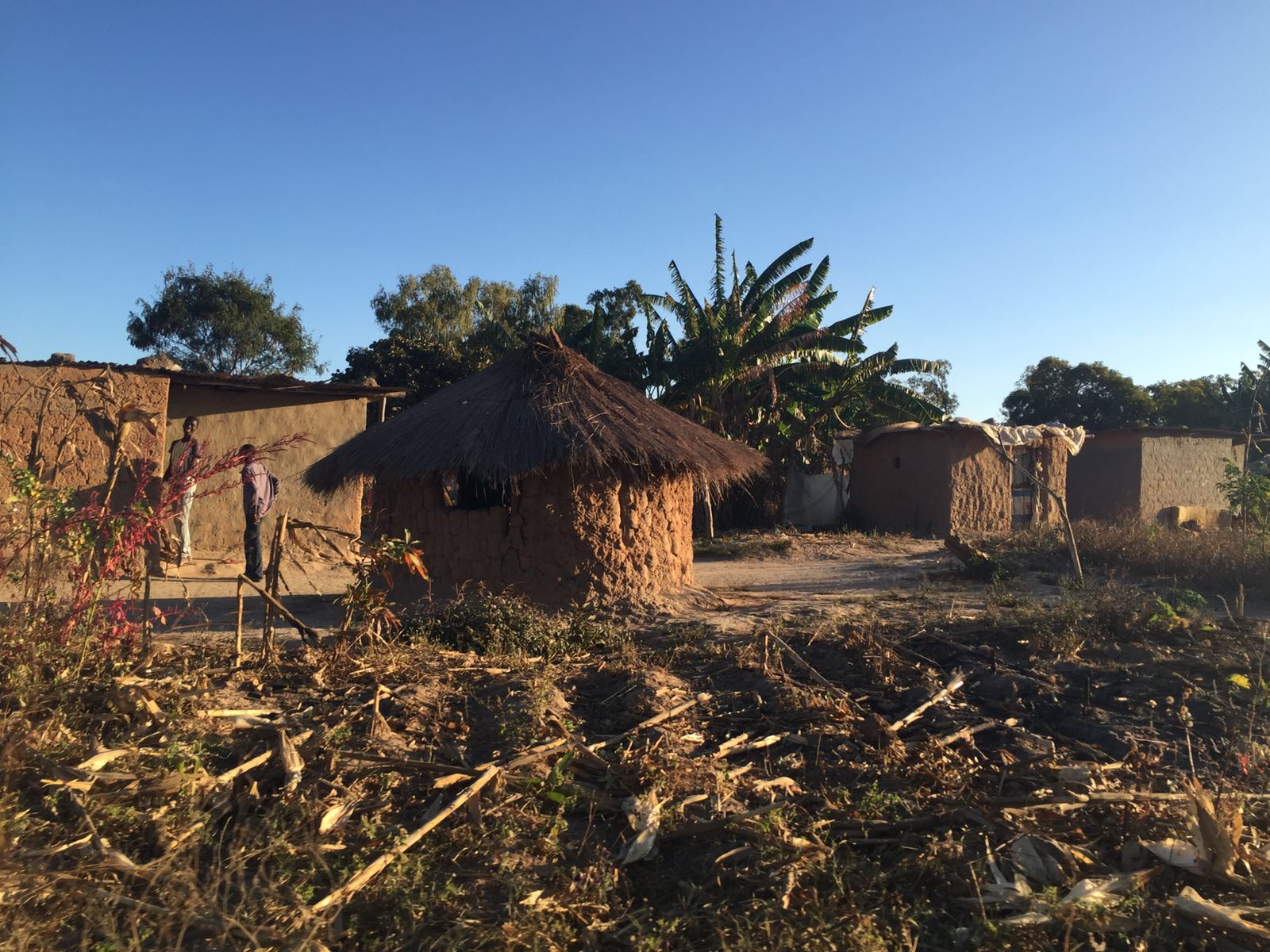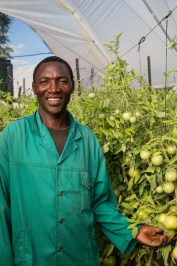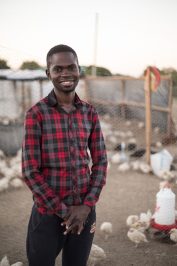From Cranfield to Zambia: the Cranfield MBA meets the Zambian Agribusiness Incubation Trust…
16/06/2016

Snapshot of Cranfield MBA Zambia International Business Assignment
Lily, Manish and I are three of 24 Cranfield MBA students currently in Zambia working with local businesses to benefit their strategic direction and growth. Our hosts for the week are AgBit (Zambian Agribusiness Incubation Trust), who we’re quickly learning are one of the most ambitious and inspiring agribusinesses around. In short, they provide two key services: training in key skills for smallholder farmers, enabling them to shift from subsistence to profitability, and incubation of start-up businesses in the agricultural sector. To date they’ve been highly successful and today we spoke with one of their trainee farmers, Charles, and a recent ‘incubatee’ graduate, Martin, now operating his own chicken enterprise.
Charles
 Charles came from his village in Chongwe, approximately 20km from Lusaka, to train at AgBit in a variety of farm enterprise management techniques. He was elected by his community to spend 6 months on the programme, after which he will return home and continue to train farmers with all he’s learned. He lives at AgBit during the week, heading home on weekends to his family, including his 6 children!
Charles came from his village in Chongwe, approximately 20km from Lusaka, to train at AgBit in a variety of farm enterprise management techniques. He was elected by his community to spend 6 months on the programme, after which he will return home and continue to train farmers with all he’s learned. He lives at AgBit during the week, heading home on weekends to his family, including his 6 children!
When Charles arrived at AgBit he was a subsistence farmer. All food produced by his community was consumed within it, with a bartering system in operation for any additional goods required. After 4 months at AgBit under the careful guidance of Brian, Maxwell and Augustine, Charles articulates with great passion the change that he has experienced through gaining knowledge. In his own words “I did not know that money could be made from these things (tomatoes)! Now, because of AgBit, I can make money and build a school in my community. I can build a health centre. I will not worry about medicine for my children any more. I can grow high value crops; crops I did not even know about! I have learned that farming is a business, and I no longer call myself a farmer; I call myself a businessman”.
Martin
 Martin arrived at AgBit after completing a Diploma in Business Management in Lusaka. While there were opportunities available to him in the business sector, his innate sense of entrepreneurialism won out, leading him to submit a business plan to AgBit to secure a spot on their start-up incubation programme. His application was successful, and Martin, in partnership with his brother, has not looked back since.
Martin arrived at AgBit after completing a Diploma in Business Management in Lusaka. While there were opportunities available to him in the business sector, his innate sense of entrepreneurialism won out, leading him to submit a business plan to AgBit to secure a spot on their start-up incubation programme. His application was successful, and Martin, in partnership with his brother, has not looked back since.
Martin’s enterprise began as one supplying indigenous varieties of chicken to the local Lusaka market in the form of day-old hatchlings, broilers and fertilised eggs. He recognised the market need for organic, Zambian-grown chicken and set about creating an enterprise to meet that market. From an initial business plan, to completing the incubation process with AgBit, Martin has come a long way and in 2015 became the African ‘Incubatee’ of the year, beating competitors from across all industries in Nairobi to take home the US$10,000 cash prize. Martin has ploughed all that cash straight back to the business, purchasing key assets, and from mid-2016 is expecting a monthly turnover of US$2,000. Martin has passion for what he does, thinks in the long term, and uses his sharp entrepreneurial sense to seek out opportunities that bring growth to his family and community.
Just one day…
A single day spent with AgBit here in Lusaka has given me a million reasons to come back to Zambia. AgBit itself is exactly the type of organisation African countries need to be able to drive sustainable business growth, and ensure food security for this continent and the world. My passions lie in all of these areas, and I’m ecstatic to experience Zambian agri-entrepreneurship through the Cranfield MBA. Zambian farmers may be small-holders but they’re big in heart and even bigger in spirit.
—
About the Cranfield MBA International Business Assignment
As part of the Cranfield MBA students undertake an international business assignment, designed to provide an opportunity to place their learning in the context of a global perspective by visiting a foreign country and a number of organisations within it. It’s an opportunity to explore issues around diversity, sustainability and corporate responsibility as they affect organisations and society in the host country.
Categories & Tags:
Leave a comment on this post:
You might also like…
Commonwealth Scholarships play a critical role in developing sustainability and leadership in Africa
Q&A with Evah Mosetlhane, Sustainability MSc, Commonwealth Distance Learning Scholar What inspired you to pursue the Sustainability MSc at Cranfield? I was inspired to pursue the Sustainability MSc at Cranfield because of the university’s ...
How do I reference a thesis… in the NLM style?
You may be including theses within your research. When you do so you need to treat them in the same way as content taken from any other source, by providing both a citation and a ...
Introducing… Bloomberg Trade Flows
Are you interested in world trade flows? Would it be useful to know which nations are your country's major trading partners? If so, the Bloomberg terminal has a rather nifty function where you can view ...
Cranfield alumni voyage to the International Space Station
Seeing our alumni reach the International Space Station (ISS) has a ripple effect that extends far beyond the space sector. For school students questioning whether science is “for them”, for undergraduates weighing their next ...
From classroom to cockpit: What’s next after Cranfield
The Air Transport Management MSc isn’t just about learning theory — it’s about preparing for a career in the aviation industry. Adit shares his dream job, insights from classmates, and advice for prospective students. ...
Setting up a shared group folder in a reference manager
Many of our students are now busy working on their group projects. One easy way to share references amongst a group is to set up group folders in a reference manager like Mendeley or Zotero. ...






